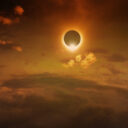The Great North American Eclipse: A Viewer’s Guide to Eye-Safe Skywatching
Get ready, skywatchers! Something super cool is about to happen in the sky on April 8, 2024. It’s called “The Great North American Eclipse.” Imagine a game of cosmic peek-a-boo where the moon covers up the sun for a little while, creating a magical show in the sky. It’s like nature’s own big screen event, and everyone’s invited to watch. But wait, before participating there’s an important rule: you need to keep your eyes safe! Let’s chat about how to enjoy the eclipse without hurting our eyes.
Understanding the Solar Eclipse:
A solar eclipse occurs when the moon aligns perfectly with the sun, causing its shadow to fall on the earth. There are three main types of solar eclipses: total, partial, and annular. The upcoming eclipse is expected to be a total eclipse, offering a unique and breathtaking experience for observers.
Why Eye Protection is Crucial:
While witnessing a solar eclipse is undoubtedly a mesmerizing experience, it’s important to prioritize eye safety. Staring directly at the sun, even during an eclipse, can cause severe and permanent damage to your eyes. The sun’s powerful rays can lead to solar retinopathy, a condition where the sensitive cells in the retina are damaged, resulting in vision impairment or blindness.
Tips for Protecting Your Eyes:
Solar Viewing Glasses:
Invest in certified solar viewing glasses that meet the ISO 12312-2 international safety standard. These glasses effectively block harmful ultraviolet, visible, and infrared radiation, allowing you to safely observe the eclipse. Ensure that the glasses are in good condition without any scratches, as even small damages can compromise their protective capabilities.
Pinhole Projector:
For those who prefer an indirect method, consider creating a pinhole projector. This simple and effective DIY solution projects an image of the eclipse onto the surface, allowing you to view the event safely without direct eye exposure.
Welding Glass:
If you’re unable to obtain solar viewing glasses, welder’s glass with a minimum shade of 14 is a viable alternative. However, ensure that it’s free of cracks or damage, as compromised glass can jeopardize eye safety.
Telescopes and Binoculars:
If you plan to use telescopes or binoculars to observe the eclipse, be sure to attach a solar filter to the front of the device. Never look through these optical instruments without proper solar filters, as the concentrated sunlight can cause irreversible eye damage.
The upcoming solar eclipse promises to be a breathtaking event, captivating observers around the world. However, enjoying this celestial show requires a responsible approach to eye safety. Whether you choose solar viewing glasses, a pinhole projector, or welding glass, prioritize protecting your vision to ensure a memorable and safe viewing experience. By following these precautions, you can observe the solar eclipse without compromising the health of your eyes.
For questions regarding solar glasses and eye protection, call our office at 724-443-6767 or 724-226-0444.
About Bissell Eye Care: John D. Bissell, OD owns and operates Bissell Eye Care servicing Northern Pittsburgh and Alle-Kiski Valley regions. With two locations to treat patients, we offer evening and Saturday appointments. Bissell Eye Care provides comprehensive eye examinations for the entire family beginning as early as 6 months, ocular disease detection and treatment, eyeglasses, sunglasses, activewear, contact lenses, and low vision examinations for those with significant vision loss. We accept most types of vision and health insurance plans. For more information, visit bisselleyecare.com or call our Bakerstown Office at 724-443-6767 or Natrona Heights office at 724-226-0444.

